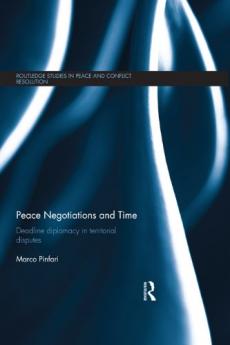This Book is Out of Stock!
English
Hardback
₹12324
₹17775
30.67% OFF
(All inclusive*)
Delivery Options
*COD & Shipping Charges may apply on certain items.
Review final details at checkout.
Looking to place a bulk order? SUBMIT DETAILS
About The Book
Description
Author
<p>This book discusses the role of time in peace negotiations and peace processes in the post-Cold War period making reference to real-world negotiations and using comparative data. </p><p>Deadlines are increasingly used by mediators to spur deadlocked negotiation processes under the assumption that fixed time limits tend to favour pragmatism. Yet little attention is typically paid to the durability of agreements concluded in these conditions and research in experimental psychology suggests that time pressure can have a negative impact on individual and collective decision-making by reducing each side’s ability to deal with complex issues complex inter-group dynamics and inter-cultural relations.</p><p>This volume explores this lacuna in current research through a comparative model that includes 68 episodes of negotiation and then more in detail in relation to four cases studies - the Bougainville and Casamance peace processes and the Dayton and Camp David proximity talks. The case studies reveal that in certain conditions low time pressure can impact positively on the durability of agreements by making possible effective intra-rebel agreements before official negotiations and that time pressure works in proximity talks only when applied to solving circumscribed deadlocks.</p><p>This book will be of much interest to students of peace processes conflict resolution negotiation diplomacy and international relations in general.</p>
*COD & Shipping Charges may apply on certain items.
Review final details at checkout.
₹12324
₹17775
30% OFF
Hardback
Out Of Stock
All inclusive*
Details
ISBN 13
9780415523875
Publication Date
-03-09-2012
Pages
-216
Weight
-406 grams
Dimensions
-156x234x13.1 mm











